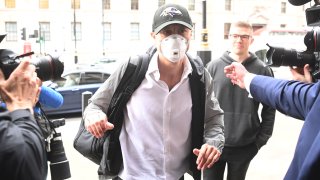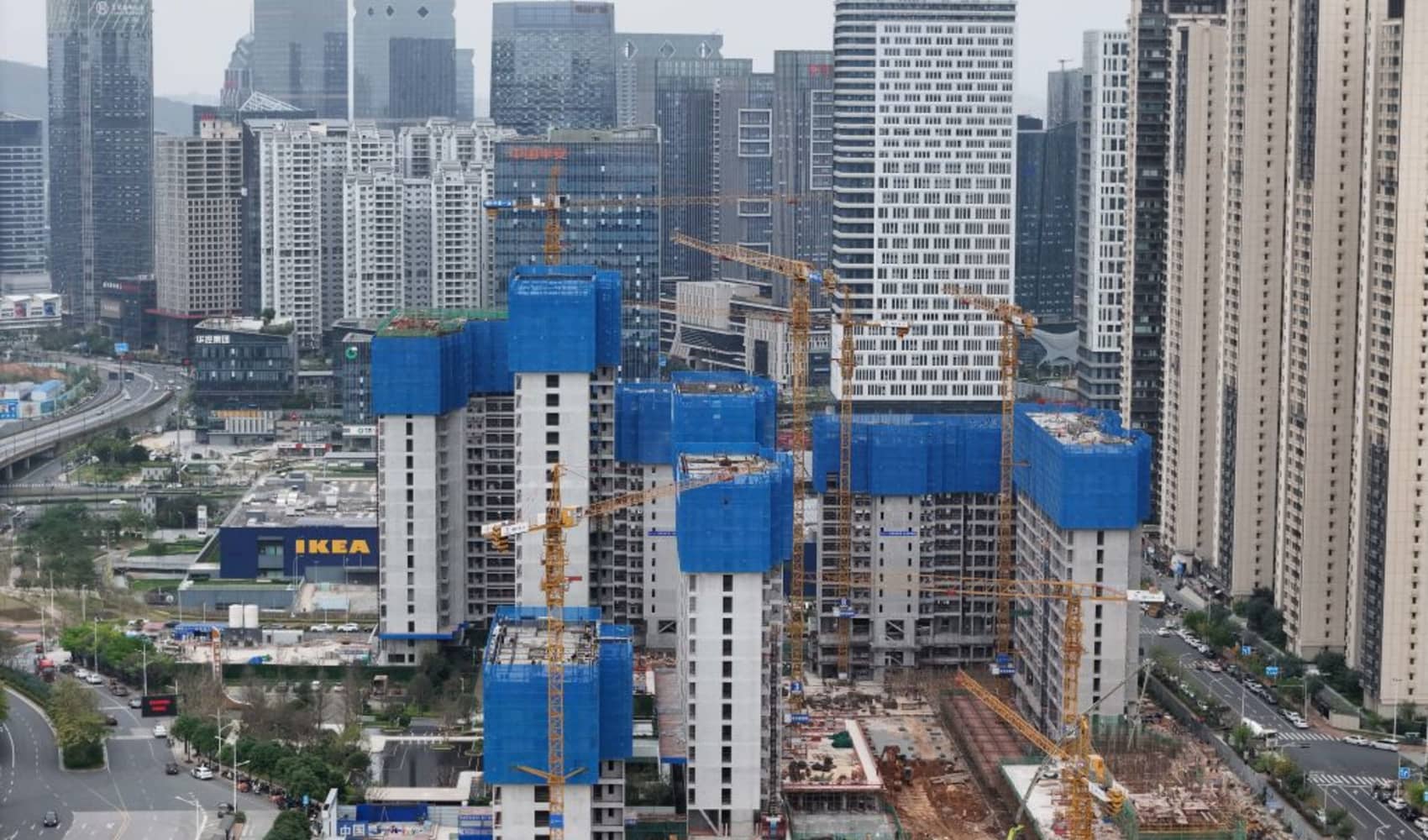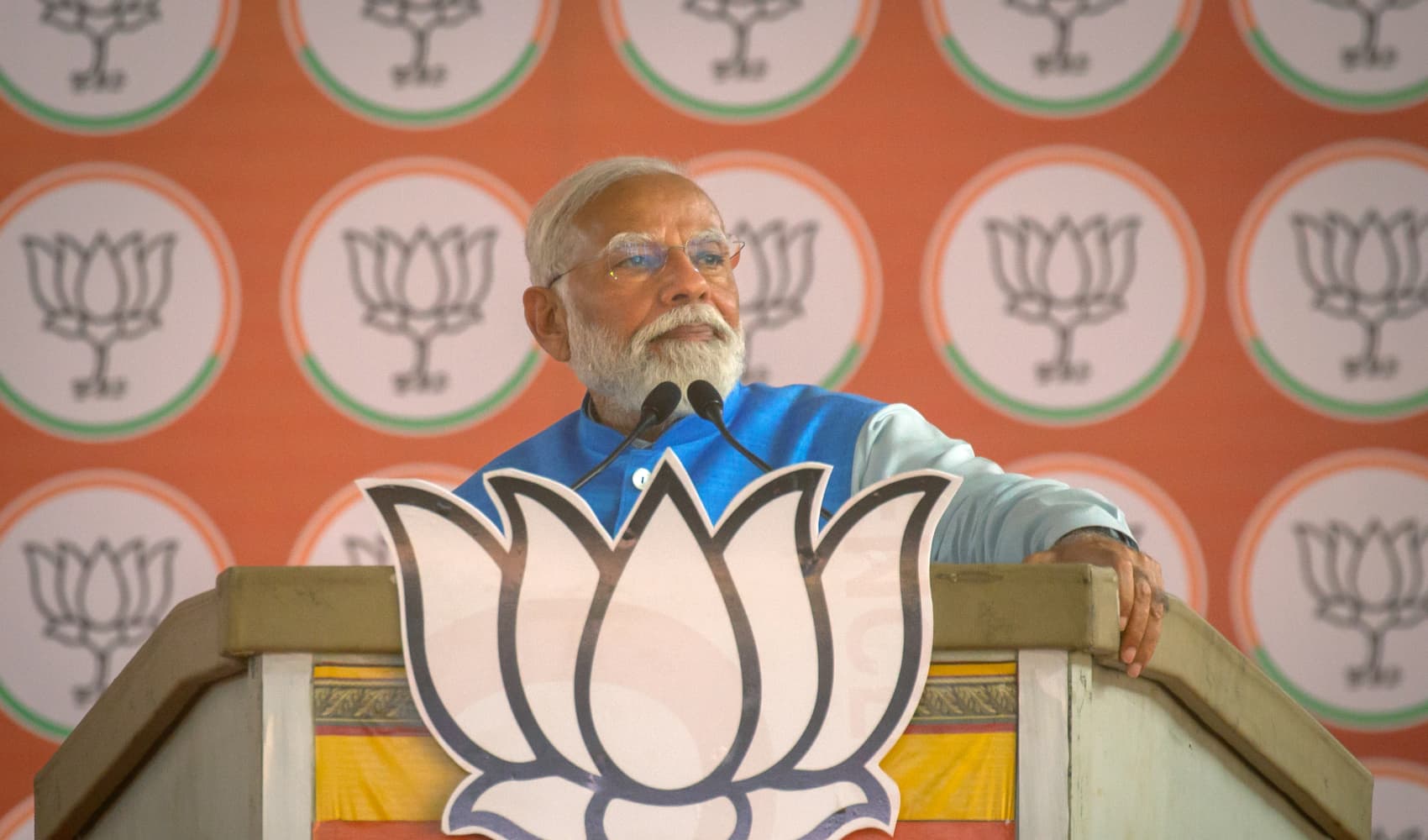
- "The point was herd immunity was regarded as an unavoidable fact," Dominic Cummings said.
- The government has repeatedly denied this was the case.
- Herd immunity occurs when enough of a population is immune to a disease, making it unlikely to spread and protecting the rest of the community.
LONDON — The U.K. government pursued a strategy of so-called "herd immunity" in response to the coronavirus crisis, according to Prime Minister Boris Johnson's former advisor, saying he is "completely baffled" by attempts from Downing Street to say otherwise.
The government has repeatedly denied this was the case. Herd immunity occurs when enough of a population is immune to a disease, making it unlikely to spread and protecting the rest of the community.
Dominic Cummings on Wednesday said the prime minister initially treated Covid-19 as a "scare story" and officials had suggested herd immunity could be achieved by encouraging people to hold "chickenpox parties."
Get Tri-state area news and weather forecasts to your inbox. Sign up for NBC New York newsletters.
He claimed to have warned Johnson on March 11 and March 12 — roughly 10 days before the first national lockdown — that the government's response to the outbreak was "completely flawed" and the country was on track to register its worst catastrophe since World War II with up to 500,000 dead.
Cummings conceded his warning to urgently change course came "far, far too late." He added: "I failed and I apologize for that."
The controversial former Vote Leave campaign director for the 2016 Brexit referendum appeared before a parliamentary committee to deliver an on-camera testimony of the government's initial response to the coronavirus outbreak.
Money Report
It comes as senior lawmakers investigate how Johnson's government responded to the onset of the coronavirus pandemic and whether delays in decision-making resulted in avoidable deaths.
"The point was herd immunity was regarded as an unavoidable fact," Cummings said.
"That was the plan. I'm completely baffled as to why number 10 is trying to deny that because that was the official plan. You can see it in the COBR documents that I have brought along," he added, referring to the acronym for Cabinet Office Briefing Rooms.
Cummings claimed government officials had briefed senior journalists at the time that this was their official strategy.
Johnson rejects Cummings' claims
"The truth is that senior ministers, senior officials, senior advisors like me, fell disastrously short of the standards that the public has a right to expect of its government in a crisis like this," Cummings said.
"When the public needed us most, the government failed," he added.
To date, the U.K. has recorded more than 4.4 million Covid cases and over 128,000 deaths, according to data compiled by Johns Hopkins University.
When asked by opposition leader Keir Starmer whether he accepted Cumming's accusations that government inaction led to unnecessary deaths, Johnson replied: "No."
"The handling of this pandemic has been one of the most difficult things this country has had to do for a very long time but none of the decisions have been easy," Johnson continued.
"To go into a lockdown is a traumatic thing for a country, to deal with a pandemic on this scale has been appallingly difficult and we've at every stage tried to minimize loss of life, to save lives and protect the NHS and we have followed the best scientific advice that we can."
Cummings worked as chief advisor to the prime minister after Johnson was appointed prime minister in July 2019. He helped the Conservative Party leader secure a general election victory in December later that year but left his role at the end of 2020 amid reports of infighting inside Downing Street.
"I think this is a really important point to register, the government itself and number 10 was not operating on a war footing in February on this in any way shape, or form. Lots of key people were literally skiing in the middle of February," Cummings said.
"It wasn't until the last week of February that there was really any sort of sense of urgency I would say in terms of number 10 and the Cabinet Office."






